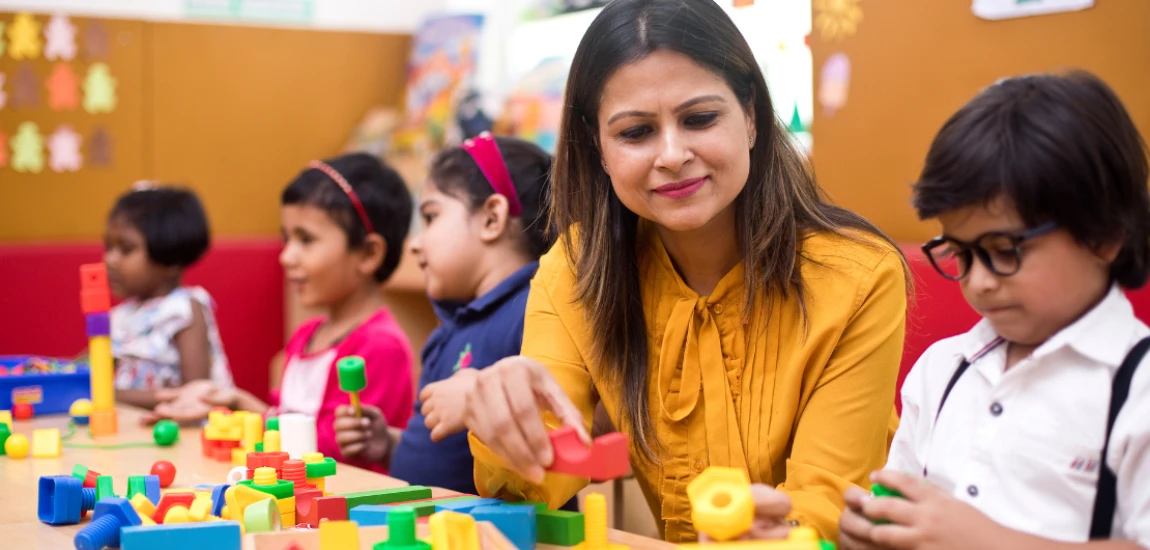EdTech and the Future of Learning: Teachers or Tech?

Education is changing faster than ever before. Just two decades ago, classrooms were defined by chalkboards, textbooks, and face-to-face interactions. Today, they are increasingly powered by digital platforms, AI tutors, and virtual classrooms. The COVID-19 pandemic accelerated this transformation, pushing millions of students and teachers into remote learning overnight and sparking a global conversation about the future of education.
At the heart of this conversation lies a key question: Will technology replace teachers, or will it support and enhance their role? This is not a simple debate of man versus machine—it’s about how technology and educators can work together to create richer, more accessible, and more personalized learning experiences.
The rise of EdTech (Educational Technology) has introduced new opportunities: online courses that reach millions, AI-powered adaptive learning tools, gamified platforms that make learning fun, and virtual reality experiences that bring abstract concepts to life. But it has also raised concerns about equity, privacy, and the risk of dehumanizing education.
In this blog, we’ll dive into how EdTech is reshaping classrooms, the benefits and drawbacks of relying on technology, the irreplaceable role of teachers, and what a hybrid future of education might look like.
The Rise of EdTech: Tools That Are Redefining Education
The term EdTech encompasses a wide range of digital tools, platforms, and innovations designed to enhance learning and teaching. From interactive whiteboards and learning management systems (LMS) to AI tutors and augmented reality classrooms, EdTech has become a powerful force in modern education.
One of the most significant contributions of EdTech is accessibility. Online platforms like Coursera, Khan Academy, and edX have democratized learning by making world-class courses available to anyone with an internet connection. This has opened opportunities for students in remote or underserved regions who previously lacked access to quality education.
Another game-changing innovation is personalized learning. AI-driven platforms can analyze a student’s performance and adapt lessons accordingly. For example, adaptive learning systems like DreamBox or ALEKS adjust the difficulty of exercises based on how quickly or slowly a student masters a concept. This helps ensure no learner is left behind and no one is held back unnecessarily.
Gamification is also transforming how students engage with material. By incorporating rewards, challenges, and interactive storytelling, platforms like Duolingo and Kahoot! turn learning into an engaging, game-like experience that increases motivation and retention.
Moreover, immersive technologies such as virtual reality (VR) and augmented reality (AR) bring subjects to life in ways textbooks never could. Imagine biology students exploring a 3D model of the human heart in VR or history students taking a virtual tour of ancient Rome. These experiences not only enhance understanding but also ignite curiosity.
However, the rise of EdTech is not without challenges. The digital divide remains a pressing concern—students without reliable internet access or devices are left behind. Additionally, issues around data privacy, over-reliance on screen time, and the commercialization of education highlight the need for careful regulation and thoughtful implementation.
Despite these concerns, EdTech has proven itself as an essential driver of educational innovation, reshaping classrooms and learning experiences across the globe.

Can Technology Replace Teachers?
With the rapid advancement of AI tutors, virtual classrooms, and automated grading systems, many are asking: Do we still need teachers in the age of EdTech?
The short answer is yes—teachers remain irreplaceable. While technology can deliver content, track progress, and even simulate real-world experiences, it lacks the emotional intelligence, empathy, and mentorship that human educators provide. Education is not just about acquiring knowledge; it’s also about nurturing critical thinking, creativity, collaboration, and social-emotional skills. These are areas where teachers excel and machines fall short.
For example, consider a struggling student. An AI platform might recognize poor performance and provide more practice problems, but a teacher can identify the underlying issue—perhaps a lack of confidence, family challenges, or a need for encouragement—and respond with compassion. Human connection is essential in motivating students, building trust, and inspiring lifelong learning.
That said, technology does excel in areas where human teachers face limitations. AI can process vast amounts of data to identify learning gaps and offer personalized resources at scale, something even the most dedicated teacher cannot do for dozens of students simultaneously. Automated grading frees up time, allowing teachers to focus on meaningful interactions rather than paperwork.
Rather than replacing teachers, the future points toward a symbiotic relationship where technology amplifies the capabilities of educators. Teachers will act more as mentors, facilitators, and guides, while EdTech handles repetitive tasks and provides personalized learning support.
The risk arises when schools or policymakers view technology as a cheaper substitute for teachers. While cost savings may be appealing, stripping away the human element of education would result in sterile learning environments that fail to prepare students for the complexities of real life.
In short, while EdTech can enhance efficiency and personalization, it cannot replace the human touch, mentorship, and inspiration that teachers bring to education.

The Benefits of a Teacher-Tech Partnership
The real promise of EdTech lies not in replacing teachers but in creating a powerful teacher-tech partnership. When used effectively, this collaboration can unlock new possibilities for both educators and learners.
Personalized Learning at Scale: Teachers often struggle to meet the diverse needs of students in a single classroom. Technology bridges this gap by providing adaptive learning tools that tailor lessons to each student’s pace and ability. Teachers can then focus on guiding students who need extra support or enrichment.
Efficiency and Time Savings: Grading, attendance tracking, and lesson planning can consume significant teacher time. By automating these administrative tasks, EdTech allows educators to dedicate more energy to teaching, mentoring, and fostering creativity.
Enhanced Engagement: Interactive lessons, gamification, and multimedia content make learning more engaging than traditional lectures. Teachers can use these tools to capture attention and reinforce difficult concepts in fun and memorable ways.
Data-Driven Insights: Technology provides teachers with real-time analytics on student performance, enabling them to identify struggling learners early and adjust instruction accordingly. This data-driven approach empowers teachers to make informed decisions.
Global Collaboration: Digital platforms allow students to connect with peers and experts worldwide, expanding horizons beyond the physical classroom. Teachers can facilitate international projects, cross-cultural exchanges, and global problem-solving.
Professional Development for Teachers: EdTech isn’t just for students—it also offers teachers access to online training, peer collaboration platforms, and digital resources that help them continually improve their craft.
By embracing a teacher-tech partnership, classrooms can become more inclusive, innovative, and effective. Students benefit from personalized, engaging learning experiences, while teachers are empowered to focus on the human elements of education that technology cannot replicate.

Preparing for the Future of Learning
If the future of education lies in a balanced relationship between teachers and technology, how can schools, policymakers, and individuals prepare for this shift?
Invest in Infrastructure: Reliable internet access and digital devices must be made available to all students, regardless of socioeconomic status. Closing the digital divide is essential to ensuring equal opportunities.
Prioritize Teacher Training: Teachers need ongoing professional development to integrate technology effectively. Training should not just focus on tools but also on pedagogy—how to use EdTech to foster critical thinking, creativity, and collaboration.
Develop Hybrid Learning Models: Blended learning, which combines face-to-face instruction with online components, offers flexibility and resilience. Schools should design hybrid systems that can adapt to both in-person and remote environments.
Protect Student Privacy: With increasing use of digital platforms, robust data protection policies are vital. Schools must safeguard student information and ensure that EdTech providers comply with ethical standards.
Foster Digital Literacy: Students must be equipped not only with academic knowledge but also with digital skills. Understanding how to navigate online resources, evaluate information critically, and use technology responsibly is crucial for future success.
Emphasize Human Skills: As technology handles more routine tasks, the unique value of teachers will lie in developing students’ creativity, empathy, leadership, and problem-solving abilities. Education systems should prioritize these human skills alongside technical knowledge.
By taking these steps, we can ensure that the future of learning harnesses the best of both worlds—leveraging the power of technology while preserving the human essence of education.





